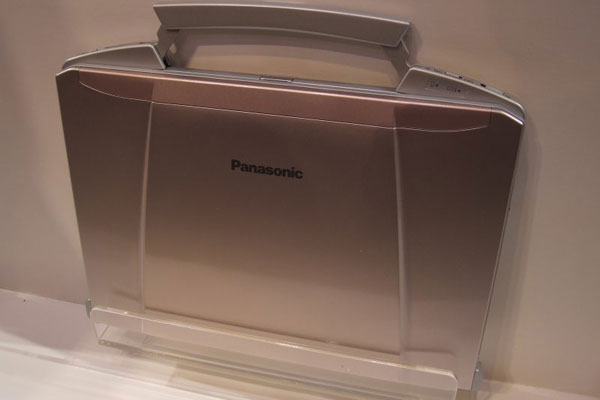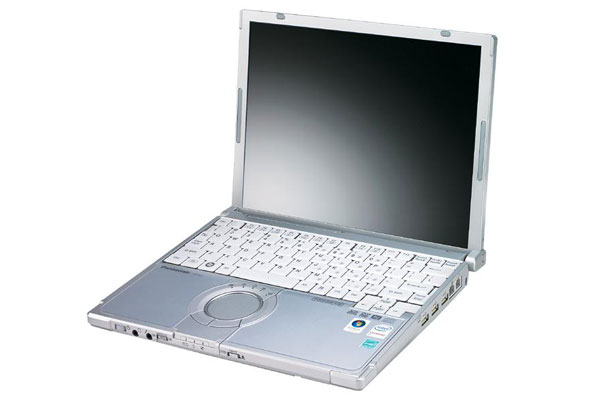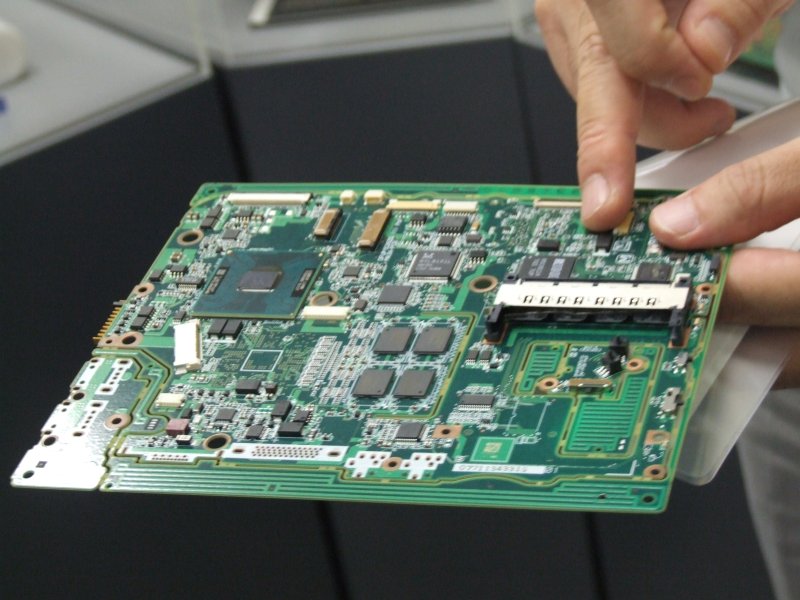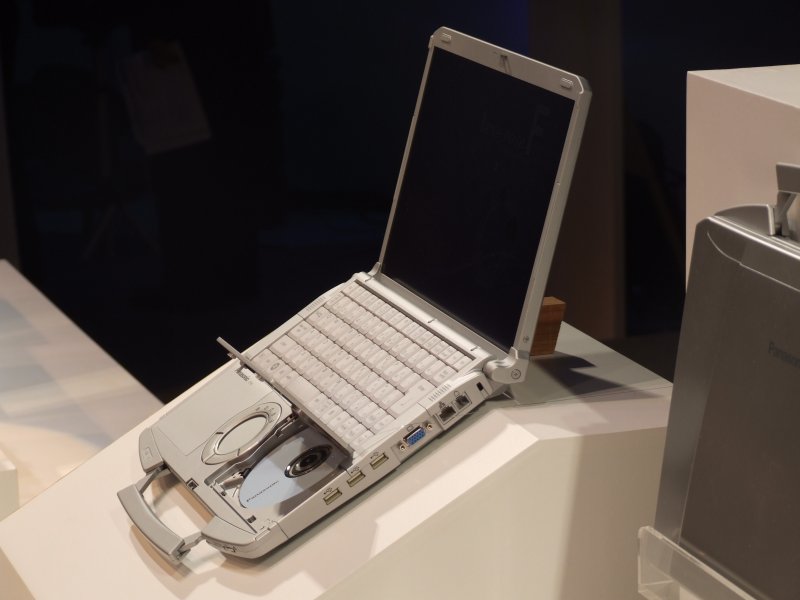Panasonic takes ToughBooks consumer with Dixons deal
Panasonic to target ToughBooks at the UK consumer market, but will pursue different strategies in Europe and Japan.


Panasonic has confirmed that its new CF-F8 ToughBook Executive will be available on UK high streets, having struck a deal with the Dixons Store Group.
This was announced at the global launch of its new ToughBooks in Japan.
However, the company insisted that the move was merely a trial to test the retail waters for its ToughBooks and that it would continue to primarily focus on the corporate market rather than the consumer.
"We want to concentrate on vertical markets," said Jan Kaempher, product marketing manger for ToughBooks. "We don't want to go into the mass market and not know what we're doing."
This is in sharp contrast to the Japanese market, where Panasonic's ToughBooks have been the number one in the ultra-portable markets for the last three years. In Europe however, Panasonic will focus on direct sales to enterprise, and through resellers covering small to medium sized businesses.
Kaempher told IT PRO that the newly released CF-T8 was, like its predecessor the T7, approved for use in medical environments with features such as EMI-safe, so it won't interfere with equipment, and a water resistant display and keyboard, so it can be kept clean for hygiene reasons. He also highlighted the strong relationships it has with European customers such as L'Oreal, and UK customers such as BT and the NHS.
Despite the deal with Dixons, Kaempher told IT PRO that Panasonic had no plans to move into wider retail space. "We're not interested in fighting it out in the consumer space with the other laptop manufactures. Most of our competitors use third-party OEM chassis, but this means there's too little product differentiation, and not enough scope for profit margins."
Get the ITPro daily newsletter
Sign up today and you will receive a free copy of our Future Focus 2025 report - the leading guidance on AI, cybersecurity and other IT challenges as per 700+ senior executives
Panasonic takes a different approach to most manufacturers by building almost every component of its notebooks in its own factories. "Our PC strategy is totally different, as we design and produce our technology ourselves," said Toshiyuki Tayaki, director of PC products. "It's very hard to give customers what they need when you use OEMs. We don't want to have to ask third parties when we want to improve our products."
Tayaki added that this was why Panasonic produced far fewer machines than competitors, with only 360,000 units in 2007 compared to Toshiba's ten million. Balancing this, he said that customer satisfaction rates were much higher than other PC companies and that Panasonic planned to increase global sales by 2012 to 1.3 million units.
"I don't want to change our strategy," he stated emphatically.
Benny Har-Even is a twenty-year stalwart of technology journalism who is passionate about all areas of the industry, but telecoms and mobile and home entertainment are among his chief interests. He has written for many of the leading tech publications in the UK, such as PC Pro and Wired, and previously held the position of technology editor at ITPro before regularly contributing as a freelancer.
Known affectionately as a ‘geek’ to his friends, his passion has seen him land opportunities to speak about technology on BBC television broadcasts, as well as a number of speaking engagements at industry events.
-
 Asus ZenScreen Fold OLED MQ17QH review
Asus ZenScreen Fold OLED MQ17QH reviewReviews A stunning foldable 17.3in OLED display – but it's too expensive to be anything more than a thrilling tech demo
By Sasha Muller
-
 How the UK MoJ achieved secure networks for prisons and offices with Palo Alto Networks
How the UK MoJ achieved secure networks for prisons and offices with Palo Alto NetworksCase study Adopting zero trust is a necessity when your own users are trying to launch cyber attacks
By Rory Bathgate
-
 Panasonic Toughbook CF-W8 - Review
Panasonic Toughbook CF-W8 - ReviewReviews We take a look at a preproduction sample of Panasonic's Centrino 2 based 'business ruggedised' Toughbook CF-W8.
By Mike Jennings
-
 Photos: Panasonic ToughBook factory tour
Photos: Panasonic ToughBook factory tourNews Following the global press launch of Panasonic's new ToughBook range in Japan, the assembled journalists were taken on a tour of its manufacturing facility in Kobe.
By Benny Har-Even
-
 First Look: Panasonic CF-18
First Look: Panasonic CF-18Reviews At the global press launch in Japan, IT PRO got a chance to take a hands-on look at the CF-18.
By Benny Har-Even